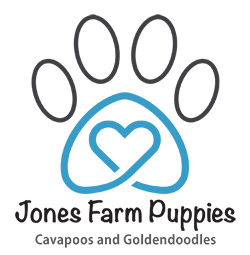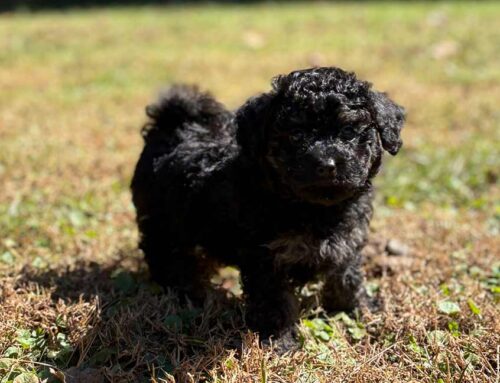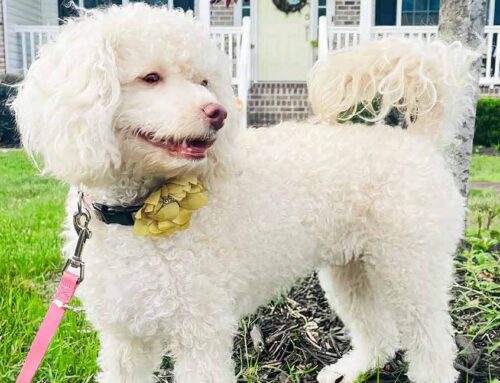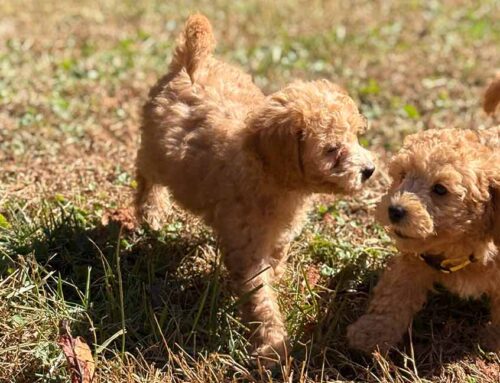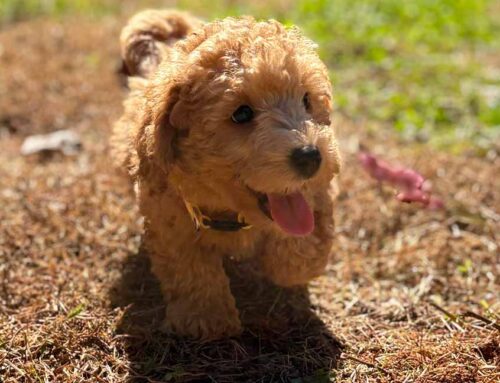
Dog Scooting: What It Means and How to Help Your Pup
If you’ve ever seen your dog dragging their bottom across the floor, you’ve witnessed dog scooting. While it might look silly and make you laugh the first time, this behavior is actually a sign that something is wrong. Dogs don’t scoot for fun; it’s their way of telling you they’re uncomfortable and need help.
At Jones Farm Puppies, where we raise healthy Cavapoos, we believe every dog parent deserves to understand their puppy’s behavior. When families bring home one of our pups, we want them to feel confident in recognizing common signs of discomfort and knowing how to respond. Let’s explore why dog scooting happens, what it usually means, and what you can do to help your furry friend feel better.
Why Dogs Scoot
Dog scooting is almost always a sign of irritation or discomfort in the rear end. Unlike paw licking or scratching an ear, this is not something your pup can solve on their own. They scoot because they are trying to relieve pressure, pain, or itchiness.
Here are some of the most common causes:
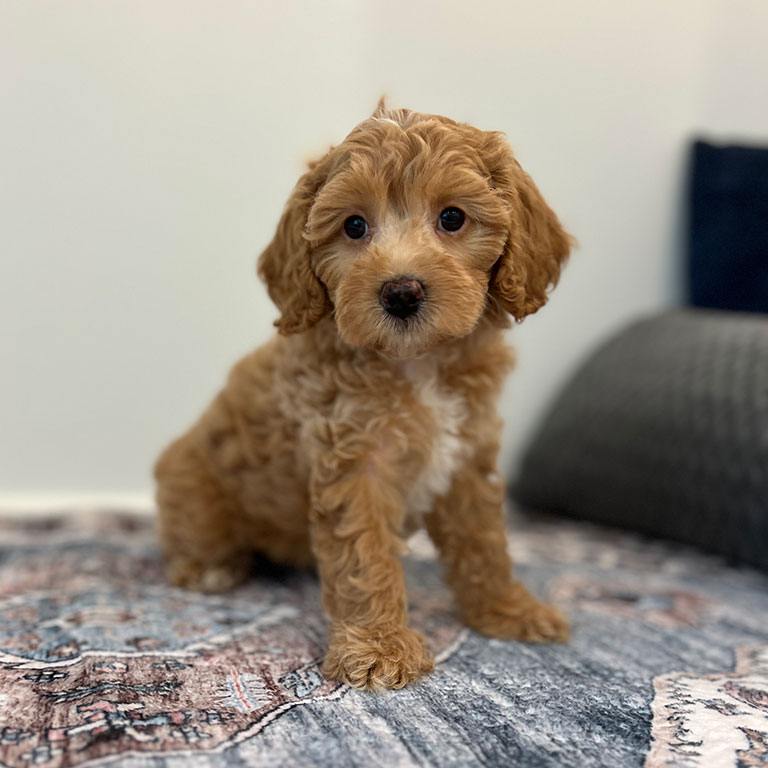
Anal Gland Issues
Dogs have two small anal glands located near the rectum. These glands produce a strong-smelling fluid used for marking territory. Usually, the glands empty naturally during bowel movements. However, sometimes they become clogged, infected, or impacted.
When this happens, your dog may start scooting to relieve the pressure. Left untreated, blocked anal glands can become painful and even lead to abscesses that require medical treatment.
Parasites
Another common cause of dog scooting is intestinal parasites. Worms, especially tapeworms, can irritate the rear end. If you ever notice tiny rice-like segments near your dog’s stool or bedding, this could be a sign of tapeworms. Along with scooting, dogs may lick excessively or seem restless.
Allergies
Just like humans, dogs can have allergic reactions to foods, pollens, or environmental triggers. Allergies often show up as itchy skin, but they can also irritate the tail and anal area. This can trigger dog scooting as your pup tries to scratch the itch on the carpet or grass.
Skin Irritation
Sometimes the cause of dog scooting is simple: skin irritation. This can happen after grooming if residue is left behind, if the fur is too long and mats near the rear end, or even after a run through tall grass that causes minor scratches.
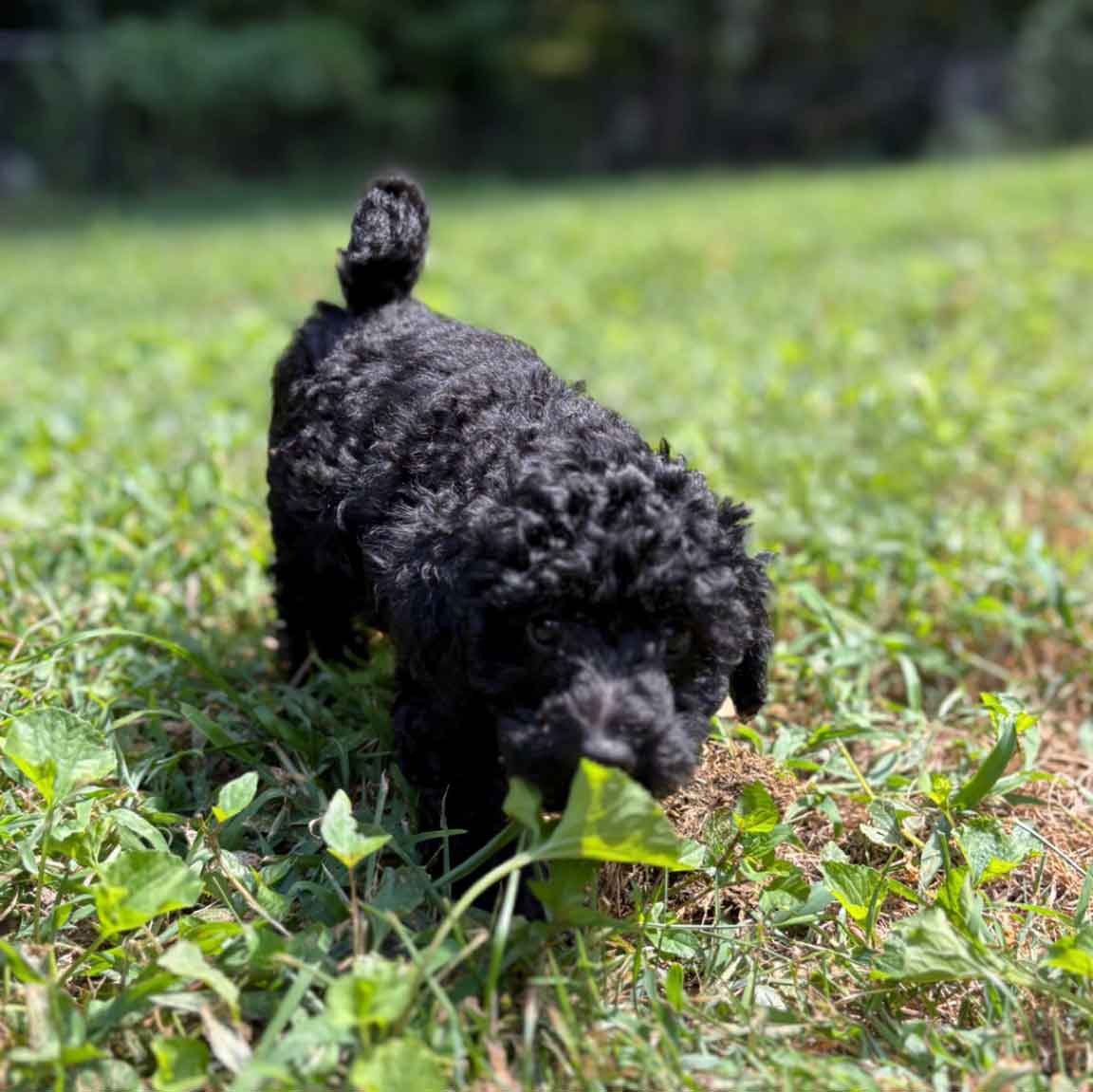
When to See the Vet
The occasional scoot after a bath may not be cause for alarm, but repeated dog scooting usually indicates a more serious issue. Here’s when to call your vet:
- If scooting happens daily or multiple times a day.
- If you notice swelling, redness, or discharge.
- If your dog is scooting and licking excessively at the same time.
- If there’s a foul smell (often linked to anal gland issues).
Your vet can perform an exam to check for parasites, allergies, infections, or blocked anal glands. In many cases, a quick procedure to express the anal glands will bring your pup relief.
How to Help Prevent Dog Scooting
No one wants to see their dog uncomfortable, and fortunately, there are ways to reduce the chances of dog scooting becoming a recurring issue.
Keep a Healthy Diet
A high-quality, fiber-rich diet helps support good digestion and promotes anal gland health. Dogs with firm, well-formed stools are less likely to develop gland blockages. At Jones Farm Puppies, we proudly use PawTree’s natural formulas because they provide the perfect balance of nutrition, fiber, and wholesome ingredients. These diets not only support digestion but also build a strong foundation for overall wellness, which helps prevent uncomfortable issues like dog scooting from ever starting.
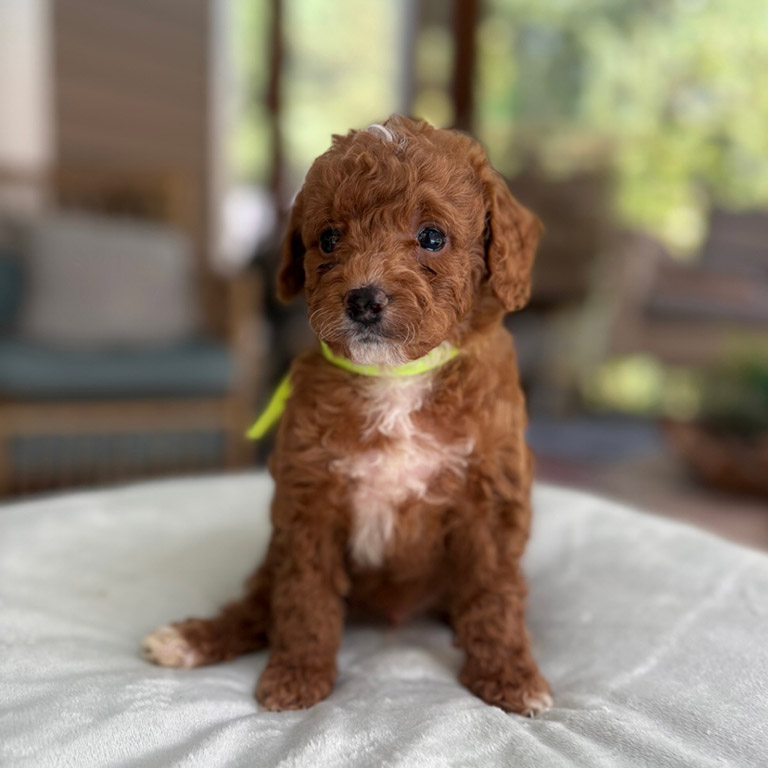
Stay on Top of Parasite Prevention
Using regular dewormers and monthly preventatives is one of the best ways to protect your dog from parasites that cause dog scooting. Puppies especially need to follow their deworming schedule, since young dogs are more prone to worms. At Jones Farm Puppies, we believe in keeping things as natural as possible; that’s why we use all-natural prevention methods, including natural supplements and even all-natural heartworm prevention. This approach supports your puppy’s health while avoiding unnecessary chemicals, helping them grow up strong and happy.
Regular Grooming
Keeping the area around your dog’s bottom clean and free of mats prevents irritation. If you have a long-haired breed, regular trims are essential. Even short-haired pups benefit from gentle cleaning after messy bathroom trips.
Maintain a Healthy Weight
Overweight dogs are more prone to anal gland problems. Helping your dog stay lean through proper feeding and exercise can reduce the chances of dog scooting related to gland issues.
Jones Farm Puppies’ Commitment
At Jones Farm Puppies, we raise our puppies with complete health and wellness in mind. From the start, we focus on proper nutrition, regular vet care, and parasite prevention. This strong foundation helps reduce the risk of discomfort, such as dog scooting, later on.
We also work with new puppy families to teach them about health maintenance. Knowing what signs to look for and when to call the vet makes all the difference in keeping your puppy happy and thriving.
What You Can Do at Home
If you notice your dog scooting occasionally, here are a few things you can try before rushing to the vet (unless symptoms are severe):
- Check for cleanliness: Gently lift your dog’s tail to see if something is stuck or matted.
- Add fiber: Pumpkin or a vet-approved fiber supplement can help improve stool quality.
- Warm compress: If your dog’s anal glands seem slightly swollen, a warm compress can sometimes provide comfort until you get to the vet.
Remember, though, that frequent or severe dog scooting needs professional attention.
Why You Shouldn’t Ignore Dog Scooting
While it might seem harmless, ignoring repeated dog scooting can lead to more serious issues. Blocked anal glands can rupture, parasites can spread, and untreated allergies can make your dog miserable. Acting quickly not only relieves your dog’s discomfort but also prevents expensive vet bills down the road.
Final Thoughts
Seeing your pup drag their bottom across the floor might make you laugh, but dog scooting is almost always a sign of something that needs attention. Whether it’s anal glands, parasites, allergies, or skin irritation, your dog is telling you they’re uncomfortable.
By feeding a healthy diet, keeping up with parasite prevention, and maintaining good grooming habits, you can help prevent dog scooting from becoming a regular issue. And if the problem persists, a quick trip to the vet will ensure your pup gets the care they need.
At Jones Farm Puppies, we’re here to support families long after their puppy goes home. With the proper care and attention, you’ll keep your best friend happy, healthy, and free from the discomfort of dog scooting. If you still have any questions about your puppy’s well-being, feel free to check out our FAQ page or contact us directly.

FAQ
Why is my dog scooting on the carpet?
Most likely because of anal gland issues, irritation, or parasites. Dog scooting is your pup’s way of trying to relieve discomfort.
Is dog scooting always serious?
Not always, but frequent dog scooting should be checked by a vet to rule out infections, blockages, or parasites.
Can I express my dog’s anal glands at home?
It’s best to let a vet or groomer handle it. Doing it incorrectly can cause pain or infection.
How can I prevent dog scooting?
A healthy diet, parasite prevention, regular grooming, and maintaining a healthy weight go a long way toward reducing dog scooting.
Do puppies scoot, too?
Yes. Puppies can scoot from parasites, allergies, or skin irritation just like adults. Since their immune systems are still developing, they should see a vet promptly if scooting continues.
